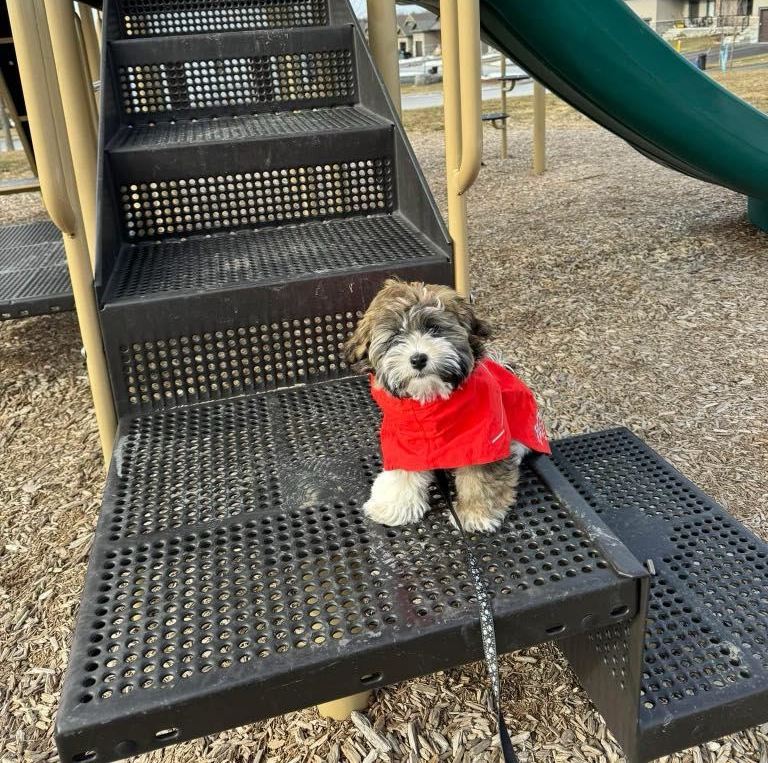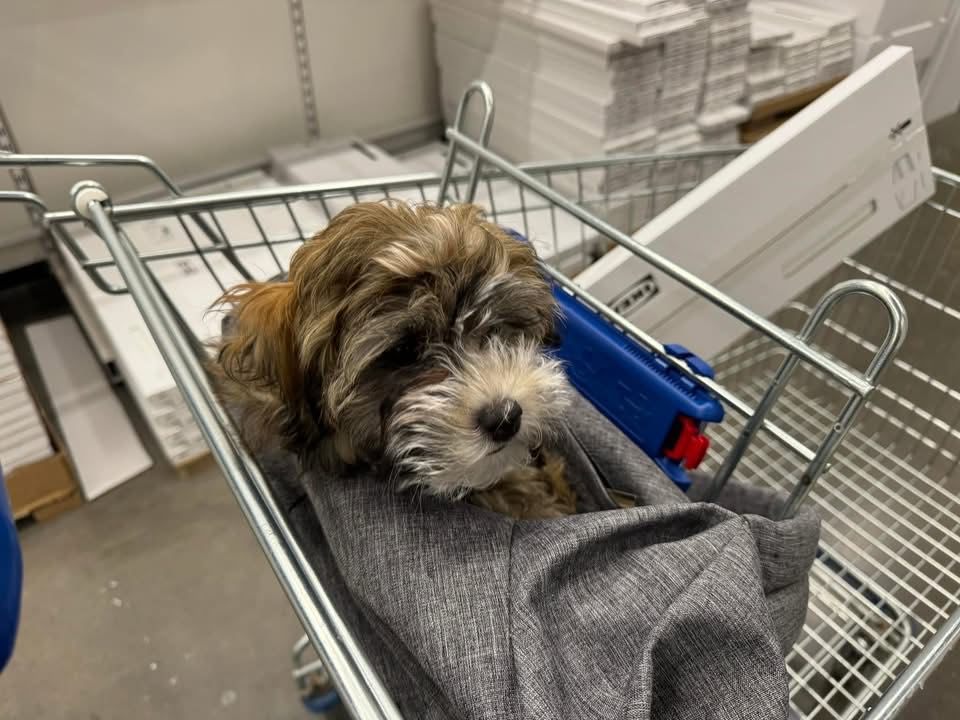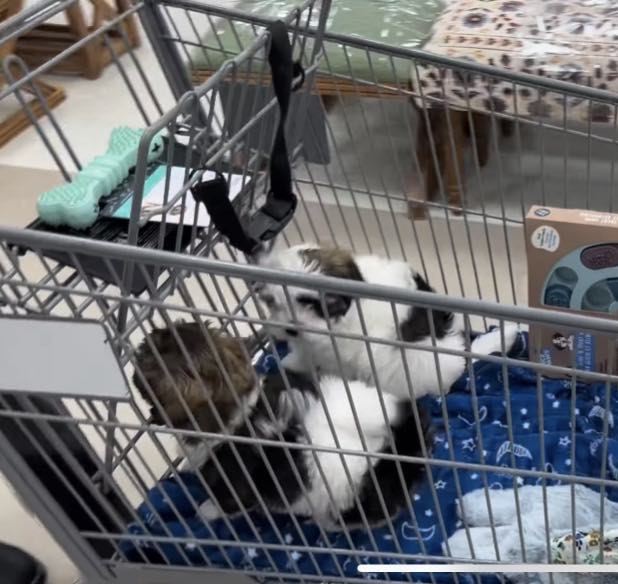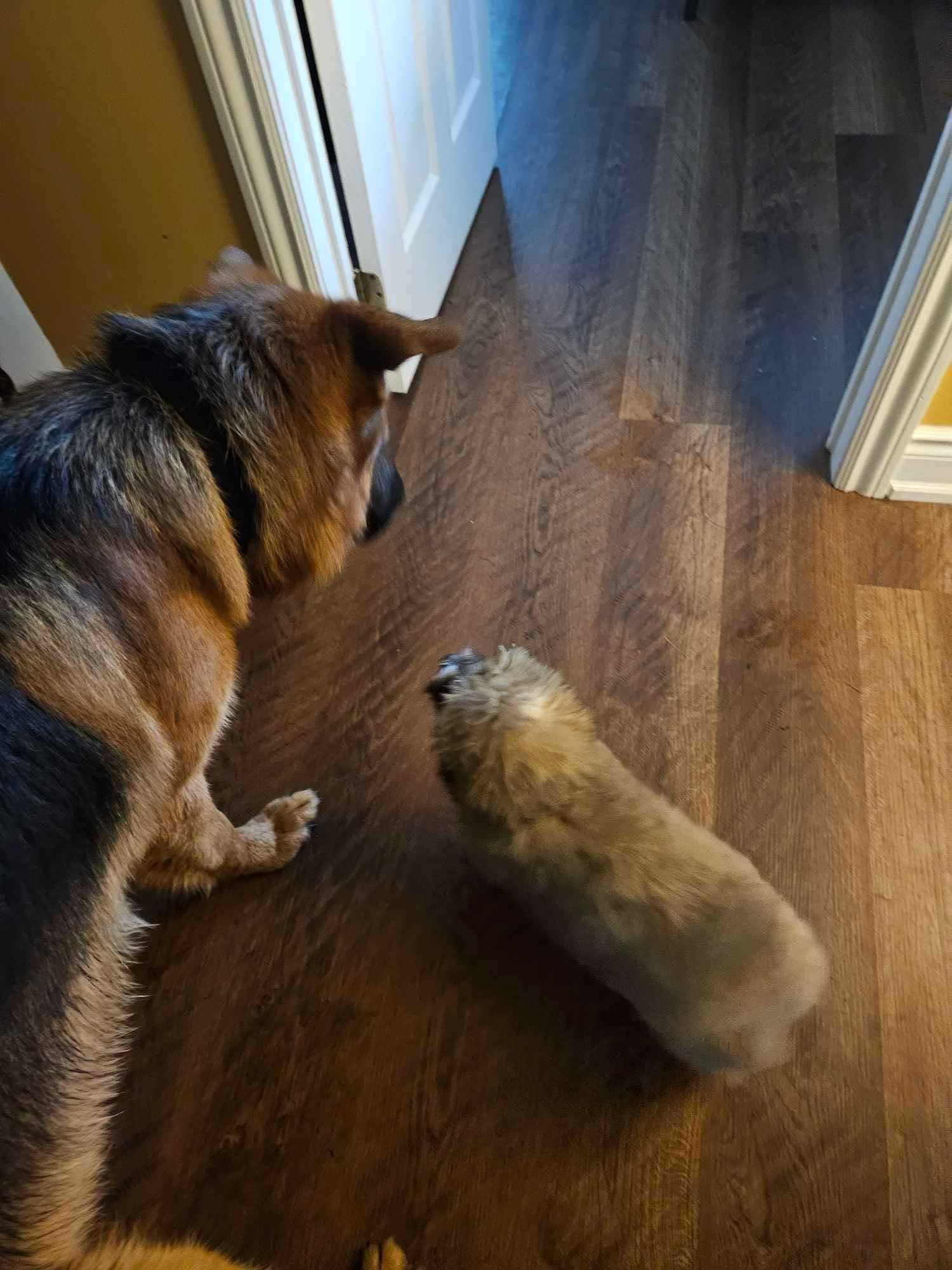Socialization
Socialization- It's Important!
Socializing a puppy is one of the most important responsibilities of any new pet owner. Proper socialization helps puppies grow into well-adjusted, confident adult dogs by exposing them to a variety of people, environments, and animals during their critical developmental period, usually between 8 and 16 weeks of age. Early socialization helps prevent behavioural issues like fearfulness or aggression later in life. By guiding your puppy through these experiences in a safe, positive way, you’re laying the foundation for a balanced dog who can thrive in various environments and social situations.
A puppy’s brain is constantly categorizing its experiences into four key types:
(A) Best Thing Ever
(B) Safe/Neutral
(C) Maybe Worrisome
(D) Terrifying
As you can imagine, we want to avoid experiences that fall into categories (C) and (D), and focus on exposing your puppy to as many (A) and (B) experiences as possible.
While many people assume socialization is just about exposing your puppy to lots of different people, animals, and environments, it’s really about ensuring those encounters are positive or neutral, ideally avoiding the “worrisome” (C) and keeping them far from anything that could be traumatic (D). The ultimate goal is to help your puppy experience most things as safe or neutral (B).
To structure socialization effectively, follow the 3 S approach:
Surfaces (things they walk, sit, or lie on)
Situations (encounters with other dogs, animals, people, or different environments)
Sounds (thunder, fireworks, gunshots—consider using apps like “Brave Puppy” for sound desensitization). This approach ensures your puppy builds a solid foundation for a calm and confident adulthood.

14 week old Lyra is exploring a new surface at a children's park.
Keeping Your Puppy Safe:
Keeping a puppy safe before they are fully vaccinated is crucial to their health and well-being. During the early weeks of your puppy's life, they are vulnerable to serious diseases such as parvovirus and distemper, which can be fatal. Here are some essential tips to ensure your puppy stays safe:
Limit Exposure to High-Risk Areas: Avoid places where many dogs gather, such as dog parks, until your puppy has completed their vaccination series. Instead, opt for controlled environments where you can monitor interactions with other animals.
Carry Your Puppy: When venturing out, carry your puppy in your arms or in a pet carrier. This minimizes their exposure to germs on the ground and keeps them safe from other dogs that may not be vaccinated.
Socialize in Safe Settings: Invite friends or family members with health vaccinated dogs to your home for controlled socialization. This allows your puppy to interact without the risks associated with public spaces.
Be Cautious with Public Outings: While it’s essential to socialize your puppy, do so carefully. Visit pet-friendly stores where you can keep your puppy off the ground. Avoid areas with heavy foot traffic until your puppy is fully vaccinated.
Monitor for Signs of Illness: Keep an eye on your puppy’s health. If they show any signs of illness, such as lethargy, vomiting, or diarrhea, consult your veterinarian immediately.
By following these guidelines, you can help ensure that your puppy grows up healthy and strong while still benefiting from valuable socialization experiences.

10 week old Lyra in a puppy carrier in a cart.
Some Ways to Socialize your Puppy while Ensuring their Safety and Positive Experiences:
• Visit Pet-Friendly Stores: Take your puppy to pet-friendly stores like Canadian Tire, Winners, or Staples. For a list of pet-friendly shops, check out this link. Carry your puppy in your arms or place them on a blanket in a shopping cart. Bring treats, and if someone shows interest, encourage them to offer a treat to create positive associations. If you see another dog, let your puppy observe from a distance and reward them for calm behavior. This helps them get used to both humans and other animals in a controlled setting.
• Walk on Busy Streets: Take your puppy for a walk along a busy street to expose them to the sights and sounds of traffic. If they’re small, carry them in your arms, but allow them to observe the cars, buses, cyclists, and people around them. Garbage Day is especially useful as it introduces them to noisy trucks, large bins, and the hustle and bustle of street activity.
• Introduce Household Appliances: Familiarize your puppy with common household noises like the washing machine, vacuum cleaner, and hairdryer. Start by allowing them to hear these sounds from a distance while rewarding them with treats for calm behaviour. Gradually reduce the distance and increase their exposure to these everyday noises to prevent future fear or anxiety.
• Enroll in Puppy Classes: Signing up for a puppy class is a great way to expose your puppy to other dogs, new environments, and structured socialization in a safe, controlled way. These classes offer an excellent opportunity for socializing while also teaching basic obedience skills.
• Day and Night Outings: It’s important to take your puppy out not just during the day but also at night. Nighttime outings help them adjust to different lighting conditions, and sounds like nighttime traffic or activity, which they may not encounter during the day. The more varied their experiences, the more adaptable they will become.
• Visit a School After Hours: Taking your puppy to a school near the end of the school day gives them the chance to observe large crowds of children, noisy school buses, and public announcements. This is an excellent way to help them get comfortable with high-energy situations and noise in a safe way.
• Sound Desensitization: Use YouTube or apps like “Brave Puppy” to expose your puppy to various sounds, such as thunder, fireworks, or the noise of large crowds. Play the sounds at a low volume at first, rewarding your puppy with treats when they remain calm. Gradually increase the volume as they grow more comfortable.
• Happy Visits to the Vet: Many veterinary clinics offer “happy visits,” where you bring your puppy in for short visits to give them treats and create positive associations with the clinic. This helps reduce fear of future vet visits, ensuring that the vet’s office is seen as a place of fun and rewards, not stress.
• Car Rides & Car Washes: Regular car rides, whether it’s a trip to the park or just around the block, help your puppy become familiar with the sensation of traveling in a vehicle. If your puppy is comfortable with car rides, take them through a carwash to introduce them to loud sounds and motion in a new context.
• Walk Over Different Surfaces: Expose your puppy to a variety of surfaces, such as bridges, stairs, gravel, tile, or grass. The more different textures they encounter, the more adaptable they will become to various environments, making them less likely to be startled or fearful of new surfaces later on.

9 week old Sasi and Bahloo on a blanket in a shopping cart.
Additional Tips:
• Controlled Playdates: Arrange playdates with well-socialized, vaccinated adult dogs. This allows your puppy to learn appropriate social behavior and how to interact with other dogs in a safe, supervised setting.
• Varied Environments: Take your puppy to different types of environments like parks, urban streets, and quieter suburban areas. Exposure to diverse environments teaches them to adapt to different settings and routines.
• Positive Reinforcement: Throughout all of these experiences, always reward your puppy with treats, praise, and play when they handle something calmly. Positive reinforcement helps them associate new situations with good things and builds confidence.
By providing a mix of new, safe experiences for your puppy, you’re setting them up for success, helping them become a confident, well-socialized adult dog capable of handling the world around them with ease.

10 week old Luca meeting a healthy, friendly dog in a safe environment.